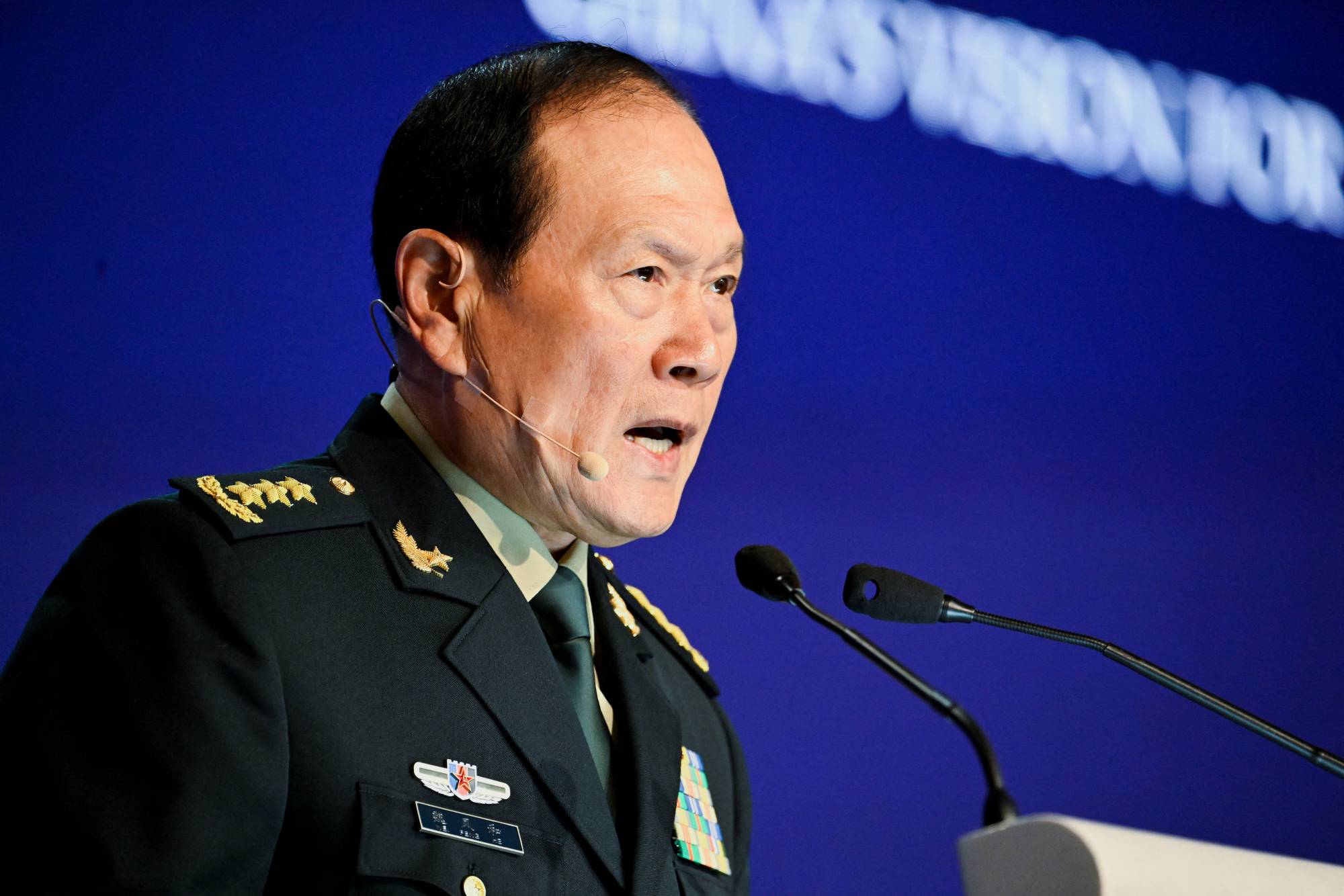Chinese Defense Minister Wei Fenghe issued a warning about foreign interference on Taiwan while criticizing the U.S. Indo-Pacific strategy as fueling regional tensions and divisions in the region.
Speaking during the regional Shangri-La Dialogue security conference in Singapore on Sunday, Gen. Wei, who is also a Chinese state councilor, reiterated Beijing’s opposition to what he described as U.S. “meddling” in regional affairs and urged Washington not to let competition define Sino-U.S. ties, saying this would be a “strategic mistake.”
Wei also spoke about the invasion of Ukraine, offering Beijing’s role as a mediator while condemning the sanctions and “maximum pressure” policies being implemented against Russia.

















With your current subscription plan you can comment on stories. However, before writing your first comment, please create a display name in the Profile section of your subscriber account page.